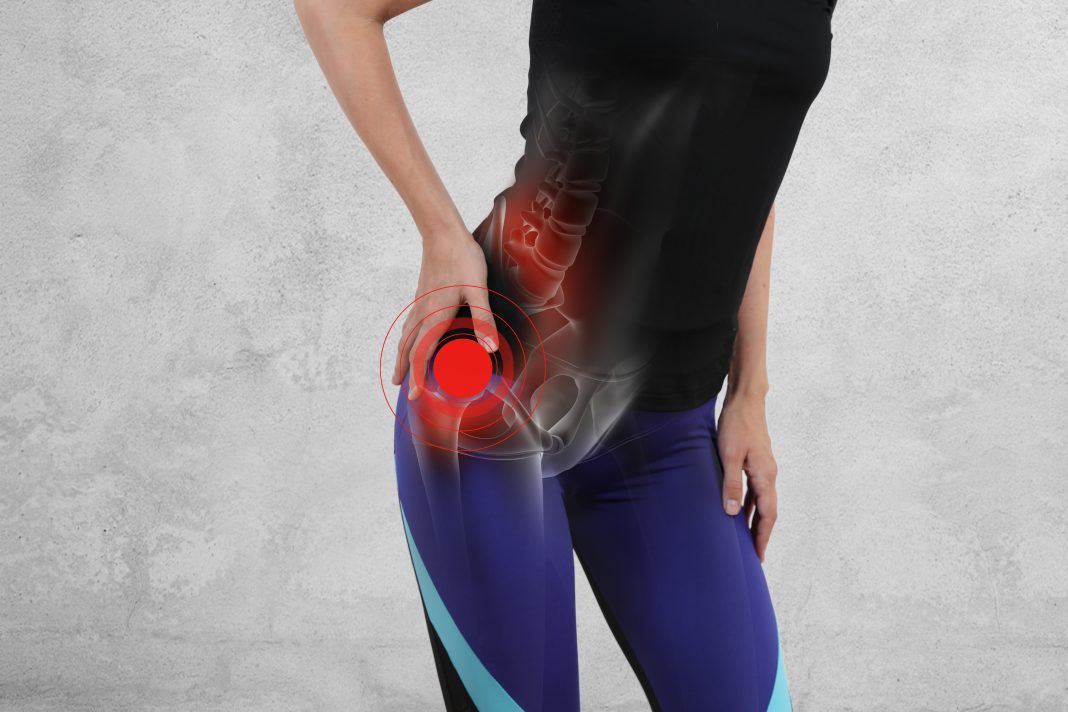What To Know
- If you don't have access to an ice pack at the moment, a bag of frozen produce like peas is a good alternative.
- That way, the doctor will also be able to pinpoint the real cause of the condition and give you the most suitable solution that would help with hip pain.
Should you suddenly feel pain in your hips, it may be triggered by different factors. It could be a direct result of aging, or it could be because of extraneous activities. Nonetheless, it’s essential for you to determine the root cause of the issue so you’ll know how to address it.
Some possibilities include osteoporosis, cancer, synovitis, and pinched nerves. You’re also more likely to feel pain inside your groin or around your buttocks. If you can still manage it without visiting the doctor, here are some remedies you can try at home to get some relief:
- Take Nonprescription Medicine
Mild to moderate hip pain can often be resolved with anti-inflammatory medicines. As the name suggests, these decrease the inflammation in the muscle area, helping alleviate the sensation. Some are formulated to induce sleep, which is something you may not get a lot of due to intense or persistent discomfort. Over-the-counter (OTC) anti-inflammatory pills are available for a low price in most pharmacies. Another option is to try delta 9 gummies.
Such medicines have minimal side effects. However, there are some claims that long-term usage has been associated with stomach and liver issues. Thus, it’s best to consult your physician if you plan to take those pills for an extended period. That way, the doctor will also be able to pinpoint the real cause of the condition and give you the most suitable solution that would help with hip pain.
- Try The RICE Method

The acronym stands for ‘rest, ice, compression, and elevation.’ Here’s a short explanation for each component:
- Rest: This means you should avoid doing tasks that’d only increase the pain. With that said, the concept of rest might be different for everyone. If you’re a yogi, it would help to avoid doing yoga for a week or so. The same applies to runners and other people who engage in strenuous physical activity on a regular basis.
Once the discomfort starts to diminish, then you can slowly return to your usual routine. To ensure that you don’t overwork yourself, be wary of any sharp sensation when you resume your everyday activities. For instance, if you feel prolonged pain again after exercising, that’s a sign to stop working out altogether. Soreness is often the result of a thorough workout, but not when it lasts too long.
- Ice: While you’re resting, it’s good to apply ice packs around the aching area. Ice helps in lessening inflammation and reducing pain. You can use ice packs four to five times in 10- to 15-minute increments. If you don’t have access to an ice pack at the moment, a bag of frozen produce like peas is a good alternative. See to it that you avoid direct skin and ice contact.
- Compression: You can also put some pressure on your hips by wrapping a bandage around them. This may keep the swelling to a minimum.
- Elevation: Lastly, try elevating your lower body. To do this, get several pillows or thick blankets and place them beneath your hips and knees. What you want is for the position of the affected area to be above the heart so blood doesn’t accumulate there.
- Build Your Hip Muscle Strength
Something that might help alleviate hip pain is strengthening the hip muscles. You can try resistance training for that very purpose. In this form of exercise, you’ll need light weights to create resistance that your muscles will work against. You can also use your own body mass, which works just as well.
If you ever experience problems with your hips for long hours, then you can opt for the following exercises:
Chair Stand: Do this exercise four to six times per set but slowly work your way up to 12 repetitions per set.
- Place a chair with its back parallel to the wall.
- Sit on the chair with your knees bent and feet resting on the floor. Cross your arms, with one hand on top of the opposite shoulder.
- Slowly lean forward. While maintaining a straight back and shoulders, move to a standing position.
- Once you’re up, carefully go back to the previous position.
Bridging: Perform this exercise five to 10 times at a time.
- While lying on your back, bend both legs at the knees with the feet resting parallel to the floor. Then, put your arms at your sides. If this feels uncomfortable, you can place a pillow under your head.
- Try lifting your pelvis and lower back while keeping your upper body flat on the floor.
- For five to 10 seconds, stay in that position, and then slowly bring your lower back and pelvis to the ground.
Mini Squat: You can do mini squats five to 10 times in a set.
- Stand tall with your feet shoulder-distance apart.
- Slowly bend the knees until they’re right above the toes while maintaining a flat back and keeping the feet resting on the ground.
- After a few breaths while staying in that position, gradually come back up, returning to the previous position.
- Try Motion Exercises
Over time, your hips will tighten, which would cause them to hurt. Doing various motion exercises such as stretching may help preserve and improve hip mobility. Here are some basic motion exercises you can do to reduce the pain in your hips:
- Gluteal Sets: These are done simply by squeezing your glutes together for a few seconds and releasing them. Repeat this 10-15 times.
- Hip Adductor Stretch: Place a stretchy band or towel behind your foot and hold the other end of the towel with your hands. Try to keep your foot pointing upward and gradually bring it to the side for about 20 seconds.
- Hip Flexion: With one knee bent, lie on your back. Make sure to bend the knee of the affected side. Gradually move your knee sideward in a window-wiper motion until you start to feel some relief. You can then go back to the original position after you feel more comfortable.
Conclusion
It’s normal to feel hip pain from time to time, especially when you’re physically active. However, if the sensation lasts longer than usual, it may be due to other reasons, such as a recent operation you’ve undergone. Especially if the issue’s affecting your daily activities, it’s best to consult your doctor. That way, you can also verify if you can keep turning to home remedies for hip pain.

